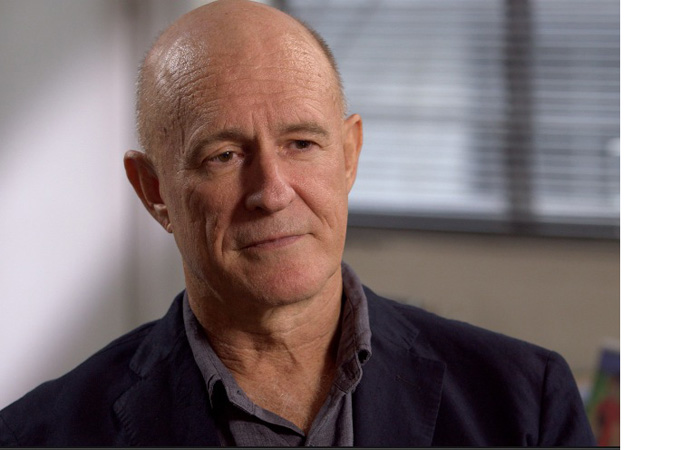
Richard Towle, UNHCR's representative for Malaysia, discusses the plight of 150,000 refugees [Al Jazeera]
Kuala Lumpur, Malaysia - Nearly 150,000 refugees and asylum seekers are registered with the UN High Commissioner for Refugees in Malaysia, which operates in the country even though it is not a signatory to key international conventions on refugees and migrants.
Most fled from Myanmar, but others escaped conflict in countries such as Sri Lanka, Syria, and Somalia. They make up one of the largest groups of so-called urban refugees in the world.
Every day some 1,000 people visit the UN compound, a warren-like collection of temporary buildings around an old colonial bungalow in Kuala Lumpur.
Al Jazeera: What's your assessment of how refugees are treated here in Malaysia?
Richard Towle: It's a fairly mixed report card. Refugees don't have legal rights in Malaysia, as they don't in Thailand or Indonesia. Refugees are treated as illegal migrants, and illegal migrants are at risk of all forms of vulnerability in society. They are liable to be arrested and detained and live in a grey or dark zone of society where there is a high degree of exploitation or abuse.
Al Jazeera: What is your biggest concern here in terms of the refugees: their rights, their ability to be protected?
Towle: I think if you asked a refugee that question, the resounding answer [would be] the lack of a future. They have no hope. They can't go home. They're unable to move anywhere else. Their lives are totally on hold.
Al Jazeera: They also face the risk of detention. What concerns do you have there?
Towle: We have established a strong relationship with the government to negotiate the release of people of concern to us from detention. Sometimes that happens quickly, and sometimes it takes a very long time. There are about 5,000 people of concern to our office currently in detention and, of that, there are a large number of women and children.
Al Jazeera: If Malaysia is detaining children, is it living up to its international obligations as a signatory to the UN Convention on the Rights of the Child?
Towle: Malaysia hasn't signed up to many of the international human rights treaties. It hasn't signed the 1951 Refugee Convention. But there are ways in which all people should be treated - fairly and decently - and we think it's not necessary in the interests of law enforcement to keep women and children and vulnerable people in detention. At a human level, detention [is] very damaging to psychosocial and indeed physical health.
Al Jazeera: People who've been released from detention have told us of beatings, abuse and deprivation. What is the UN doing about this?
Towle: We're aware of a number of stories of harsh and tough physical conditions inside immigration detention and police facilities. There have been a number of deaths in one of the detention centres over the past six to nine months in Malaysia, and that causes us considerable concern. We think that detention facilities should have an oversight body, which is able to access these places to look precisely at those sorts of questions.

How are people being treated? Are they getting access to food? Are they getting access to healthcare? Are they able to get visits from their loved ones and messages in and out of the place?
They may have transgressed some regulations and laws about migration status, but at the end of the day they're ordinary people and they're entitled to be treated in a humane and fair way.
Al Jazeera: Some of the refugees we spoke to said they'd been in detention for six months, some two years. One said as long as five. Why is it taking the UNHCR so long to get people freed?
Towle: Part of the answer is resources. There are probably 5,000 people in detention at the moment. We get access to some of them. We don't get access to all of them. If we brought all of our resources to bear tomorrow to get people out, we'd get a percentage out. It's a very long and labour-intensive exercise to go to some of these detention centres, to conduct an interview, to be satisfied they meet our criteria as refugees.
Al Jazeera: We're told that for some people coming to Malaysia today that the first opportunity for an interview is in 2017. Is this fair?
Towle: I don't think that's a fair characterisation of what's happening. We have a way of fast-tracking cases - unaccompanied children, victims of gender-based violence, for example, so we can prioritise and escalate. If somebody presents from a part of the community where they're not in a life-threatening situation and can cope on their own for a while, we won't be prioritising their interview because we don't have the resources.
Al Jazeera: But the mandate is clear - to protect asylum seekers. Considering the realities, is the UN failing refugees here in Malaysia?
Towle: The UNHCR is doing its best. We've got finite resources. They're not getting bigger. We don't have much support from the state. We have relatively weak civil society engagement. It is quite clear that UNHCR is not able to provide the level of support, and that's why we have to prioritise.
If the international community doesn't give us the tools to do the job effectively, then we have to do as best we can with what we have. That applies to Malaysia, Myanmar - even Syria.
http://www.aljazeera.com
No comments:
Post a Comment